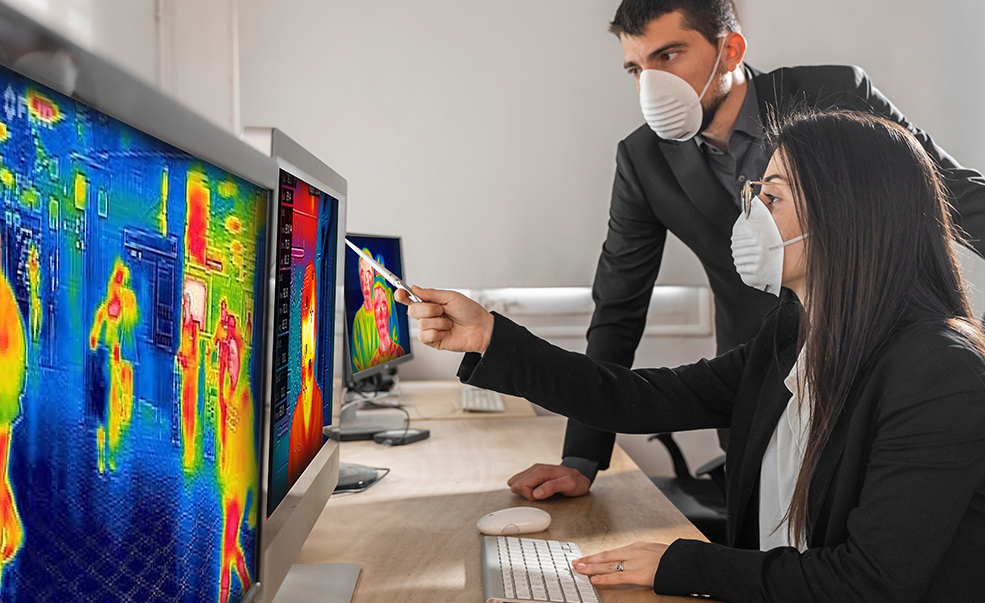The coronavirus pandemic has had a tremendous impact on all businesses, including the security industry. However, many security professionals saw new opportunities in the midst of this crisis: new approaches to using security products to meet the challenges of the pandemic.
The new role of thermal imaging cameras
Thermal imaging cameras, an important tool in traditional physical security and perimeter protection, began to be actively used during the early stages of the pandemic to quickly monitor the temperature and contacts of workers, contractors and visitors.
These types of systems are flexible enough to integrate with a wide range of VMS platforms and access controls. Thermal cameras can be used to detect signs of fever. At the same time, it is extremely important to correctly adjust the camera to improve the measurement accuracy.
Temperature detection systems
Many companies have begun to actively promote the installation of temperature detection systems in government offices, hospitals, airports and small retail establishments. However, do they know how to properly use such systems? Careless use of such systems can lead to undesirable consequences. Therefore, users need to know what questions to ask them to maximize the accuracy of their temperature detection systems.
The rise of contactless access control systems
The spread of the novel coronavirus has led to increased attention to hygiene, as this spread is associated with the use of surfaces such as keyboards for door readers. Now contact access control devices are going out of fashion and this trend is likely to be long term. They are being replaced by a number of new technologies for contactless access control - face recognition devices, veins of the palm, retina, thermal imaging systems.
Face recognition systems
Facial recognition systems have been among those who have benefited the most from concerns about the spread of COVID-19. New advances in software, especially algorithms, neural networks, deep learning and artificial intelligence, have dramatically increased the accuracy of facial recognition systems, making them suitable for everyday business solutions of all sizes.
Medical masks have received widespread use as a preventive measure, and therefore it became necessary to control the mask regime. Modern facial recognition systems are already able to determine whether a visitor or employee is wearing a mask and send appropriate notifications to security personnel. This technology has proven to be an economical and effective solution to reduce the risk of confrontation due to masking.
Smart video analytics
Other high-tech systems have come to the rescue, including artificial intelligence tools. Systems are being developed and are being prepared for implementation that allow detecting places of dangerous congestion, potentially infected persons, tracking and limiting the spread of the virus.
One such AI solution can effectively limit the spread of the virus and bring business start-up and return to normal life closer. The complex solution includes tools for smart video analytics, face recognition, object identification, temperature detection cameras and can help a business that works with a large number of customers to return to a safe mode of operation.

.png)
.png)

.png)
.png)